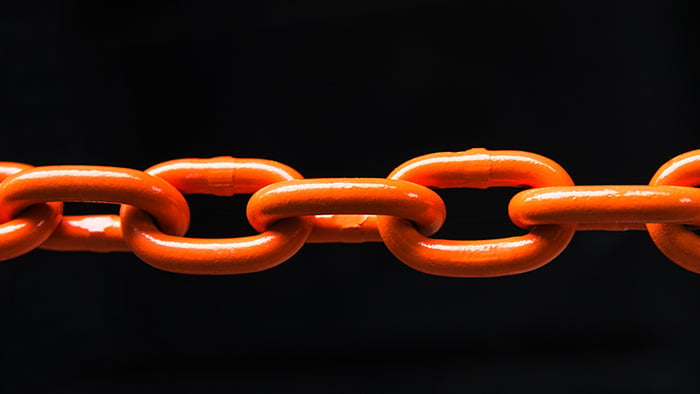- Security
- Privacy
- Performance
How to Browse the Web Anonymously
Want to share your online search history with advertisers? How about your partner or roommates? We didn’t think so. For true online privacy, you’ll need more than private mode on Google Chrome. Here, we’ll explain how anonymous browsing works and show you how to do it. Plus, stay secure and private with a special secure browser.
/How-to-browse-the-web-anonymously-Hero.jpg?width=1200&name=How-to-browse-the-web-anonymously-Hero.jpg)
Written by
Published on February 18, 2021
Reviewed by
Nica Latto
Published on February 18, 2021
Reviewed by
Sander van Hezik
This Article Contains
This Article Contains
What is anonymous browsing?
Anonymous browsing means browsing the web while hiding your personally identifiable information, so you can’t be tracked by advertisers, websites, your ISP, the government, or hackers. While anonymous browsing traditionally refers to hiding your IP address, you should also block tracking cookies and browser fingerprinting to get real online privacy.
Is anonymous browsing the same as private browsing?
No, anonymous browsing and private browsing are not the same. Private browsing refers to using a browser’s private mode, such as Google Chrome’s Incognito mode or Firefox’s private windows. While using these modes, your browser won’t store your search history and will clear your cookies and other temporary browsing data once you close the window — but you can still be tracked, and you are not at all anonymous online.
How to browse the web anonymously
To prevent online tracking and stay anonymous online, you’ll need to move beyond a browser’s private mode. Here’s how to protect your anonymity online:
Define your desired level of anonymity
First, let’s define your desired privacy level. Are you a whistleblower working to expose confidential government secrets? Or are you just trying to see fewer targeted ads? Consider the level of anonymity you need.
-
Low: I don’t want my partner, kids, or roommates to see what I search for or look at online when they borrow my computer.
-
Medium: I don’t want advertisers, my ISP (internet service provider), the government, my school, or my employer to see what I’m doing or track me.
-
High: I need to block advertisers, my ISP, the government, and everyone else. My identity must stay completely hidden.
If you’re looking for the lowest level — meaning just hiding your session cookies and search history from anyone else who might use your computer — then you’ll be fine with private browsing. Here’s how to use it in various browsers:
For a medium or high level of anonymity, you’ll need to learn a bit about how web tracking works.
Learn how web tracking works
You can assume that nearly every site you visit uses web tracking to collect data about you. And while regulations like Europe’s GDPR (General Data Protection Regulation) or California’s CCPA (the California Consumer Privacy Act) seek to improve data privacy by requiring consent for cookies, they’ve effectively pushed advertisers and corporations into using sneakier forms of tracking.
The main types of web tracking are:
Cookies. Cookies are tiny bits of code stored on your computer by your web browser, and they contain information about your web activity. First-party cookies help websites work properly — they remember your login info, language settings, or the items you add to your shopping cart.
But many websites also contain third-party cookies planted by companies or organizations who want to understand your behavior and preferences to serve you targeted ads. These cookies track you from one website to the next, and they’re the reason you see the same ads for the same products on multiple websites.
IP address tracking. Your IP address identifies you online. It’s how the data you request, such as your internet searches and emails, reaches you. Every device on the internet has an IP address, which also indicates your general physical location.
Websites use your IP address to identify your preferred language and currency. By tracking where you’re from, when you visit, and what you’re doing while there, websites can attempt to predict your future behavior.
Pixel tracking. Pixels are tiny images that are invisible to the human eye, but can track and record what you’re doing. Pixels in emails are used to track whether you open the email and click on any links inside. Pixels on websites, such as the Facebook pixel, let website owners track how you navigate their site, what you buy, how often you visit, and even if you visit the advertiser’s website on different devices.
Device fingerprinting. Originally invented by banks as a fraud prevention technique, device fingerprinting allows companies to track you while circumventing GDPR and similar regulations. This technique runs invisible scripts in your browser to obtain all sorts of data about the device you’re using. That data is then assembled into your device fingerprint. Your fingerprint can identify you out of a crowd with a high level of accuracy — and without needing your IP address or cookies.
All of this information gets compiled into a profile about your interests, demographic categories, predicted buying behavior, and related data. If that weren’t bad enough, data brokers then buy and sell your data — and any time your info gets exposed in a data breach, people can trade your data on the dark web.
Get the tools to browse anonymously
Considering what you’re up against, you should understand why it’s not so easy to become anonymous online. But with a few tools, tips, and tricks, you can get a considerable level of anonymity. Here’s how to surf anonymously with various tools:
/icon_05.svg) Get a VPN, a proxy server, or Tor
Get a VPN, a proxy server, or Tor
First, hide your IP address and physical location. You can do this using Tor, a proxy server, or VPN. You’ll also want to encrypt your data with a VPN to prevent anyone from seeing what you’re doing online.
Avast SecureLine VPN creates your own personal virtual private network, which fully encrypts your connection and hides all your internet traffic. A VPN can instantly encrypt any network, making it an essential tool for protecting your sensitive personal data on public Wi-Fi.
/icon_06.svg) Use a private email service
Use a private email service
Are you worried about your communications being intercepted or read? Use anonymous email to encrypt your communications from end-to-end. A privacy-focused email provider like Protonmail won’t ask for personal information when you sign up. You can also choose an anonymous texting service for your mobile device.
/icon_07.svg) Employ specialized anti-tracking software
Employ specialized anti-tracking software
Now, let’s hide from advertisers. Avast AntiTrack protects your online identity by identifying and exposing trackers, then feeding them fake data to mask your activity and obscure your digital fingerprint. Plus, all your purchases stay hidden, so advertisers can’t target you for personalized ads.
/icon_08.svg) Use a more private search engine
Use a more private search engine
Avoid Google and Bing, which are huge players in tracking and advertising. Try DuckDuckGo or another private search engine instead.
/icon_09.svg) Get a secure browser
Get a secure browser
Incognito mode on a normal browser isn’t enough, but a dedicated secure browser offers all kinds of privacy benefits. Block online tracking and mask your digital identity with the built-in anti-fingerprinting technology in Avast Secure Browser. Plus, block ads, prevent phishing attacks, and get lightning-fast browsing.
Avast Secure Browser even comes with a free unlimited VPN on mobile, so you can hide your IP address and encrypt your browsing data with just a single tap. And on Windows, you can conduct extra-sensitive activity in the ultra-secure Bank Mode, which prevents trackers or hackers from seeing any traces of what you’re doing.
By combining the tools mentioned above, you’ll easily achieve a moderate level of online privacy. In the market for true anonymity or 100% invisibility online? Keep reading.
Consider security, too
The whole point of special browsers and VPNs is to keep your private information private, right? So while you’re at it, let’s block hackers, too. Cybercriminals are always on the hunt for your personal data, since it can help them unlock your accounts.
-
Make sure you’re using the best antivirus software to prevent spyware and keyloggers from stealing your usernames, passwords, bank details, and more.
-
Avoid social media. If you can’t pry yourself away from the hot takes and cat videos, at least make sure you’re not leaking personal info. Tighten up your Facebook privacy settings and reign in your oversharing on Instagram.
-
Make sure you know the common signs of phishing so you don’t get tricked into sending your personal data to a scammer.
- Protect your credit card or social media accounts with identity monitoring and theft protection. You can also get identity theft insurance to keep you covered in the worst case scenario.
Is true anonymity possible online?
Sadly, no. Though the tools mentioned above will keep you far more hidden than you are now, it’s not possible to be 100% anonymous online. Think about it: At one point, you signed up for your internet service, so they have your name, contact info, and billing info.
The same goes for most of the services mentioned here. To sign up for a VPN anonymously, you could create an email account with fake personal information, and then use that to sign up for a payment service like PayPal that protects your private information somewhat — and then use those to sign up for a VPN. But there’s still a data trail.
True privacy freaks and anonymity-philes can take things to an extreme level, though. To become untraceable, you could try the following:
-
To use the internet without registering with an ISP, buy an internet hotspot. To prevent any record of you buying it, get a friend to buy it for you, in cash.
-
As soon as you get online, connect to the Tor network.
-
From there, create an email account with an encrypted email service using fake personal information.
-
Then, download a VPN service that accepts payment in cryptocurrency, and sign up for that with your fake email and anonymous payment. Connect to the VPN.
-
Now you can use Tor browser or a secure browser in private mode to surf anonymously. Even with all of these precautions, a dedicated sleuth (or NSA agent) could still find a way to identify you.
Pretty extreme, right? The above process would also make for an extremely slow browsing experience. It’s what some whistleblowers, journalists, or those living under oppressive regimes have to do.
But for most of us, that type of anonymity is inconvenient and unnecessary. For the best balance of anonymity and convenience, use a secure browser that blocks web tracking while you surf and add a VPN to hide your IP address. You’ll have plenty of internet privacy — but with an internet that’s still usable and fun.
Easily browse securely and privately
While complete anonymity isn’t possible online, you can still take some quick and easy steps to strengthen your online privacy. Not ready to learn how Tor works or buy an anti-tracking tool? Our free Avast Secure Browser is the best way to dip your toes into the online privacy pool.
/ASB-July2022.png?width=600&name=ASB-July2022.png)
Get anti-tracking, anti-fingerprinting, automatic ad-blocking, plus security protection against malicious websites and downloads. And with the free mobile VPN, you can hide your IP address and encrypt your connection. Download it today for free — no personal information required.
Stay Anonymous Online
Download free Avast Secure Browser for Mac to block web tracking, ads, and browser fingerprinting. Get secure, anonymous browsing.
Stay Anonymous Online
Install free Avast Secure Browser for iPhone and iPad to block web tracking, ads, and browser fingerprinting. Get secure, anonymous browsing.
Stay Anonymous Online
Download free Avast Secure Browser for Windows to block web tracking, ads, and browser fingerprinting. Get secure, anonymous browsing.
Stay Anonymous Online
Install free Avast Secure Browser for Android to block web tracking, ads, and browser fingerprinting. Get secure, anonymous browsing.
This Article Contains:
More Privacy Articles

Is TikTok Shop Safe and Legit?

Is AliExpress Legit? How to Buy From AliExpress Safely

The Dangers of Artificial Intelligence: What You Need to Know

Generative AI Defined: What It Means & How It Works

What Is Blockchain Technology And How Does It Work?

Artificial Intelligence Defined: What Is AI and How Does It Work?

Different Types of Artificial Intelligence (AI) You Need to Know

Has My Number Been Blocked? 5 Ways You Can Tell

Is Temu Legit or a Scam? What You Need to Know to Stay Safe

What Does 5G UC Mean on Android & iPhone?

How to Delete or Deactivate Your Twitter (Now X) Account

TikTok: Is It Safe and Should I Download It?
Block trackers and browse anonymously with Avast Secure Browser for iPhone and iPad
Avast
Secure Browser
Block trackers and browse anonymously with Avast Secure Browser for Android
Avast
Secure Browser
Digital Life
Privacy
Nica Latto
18-02-2021